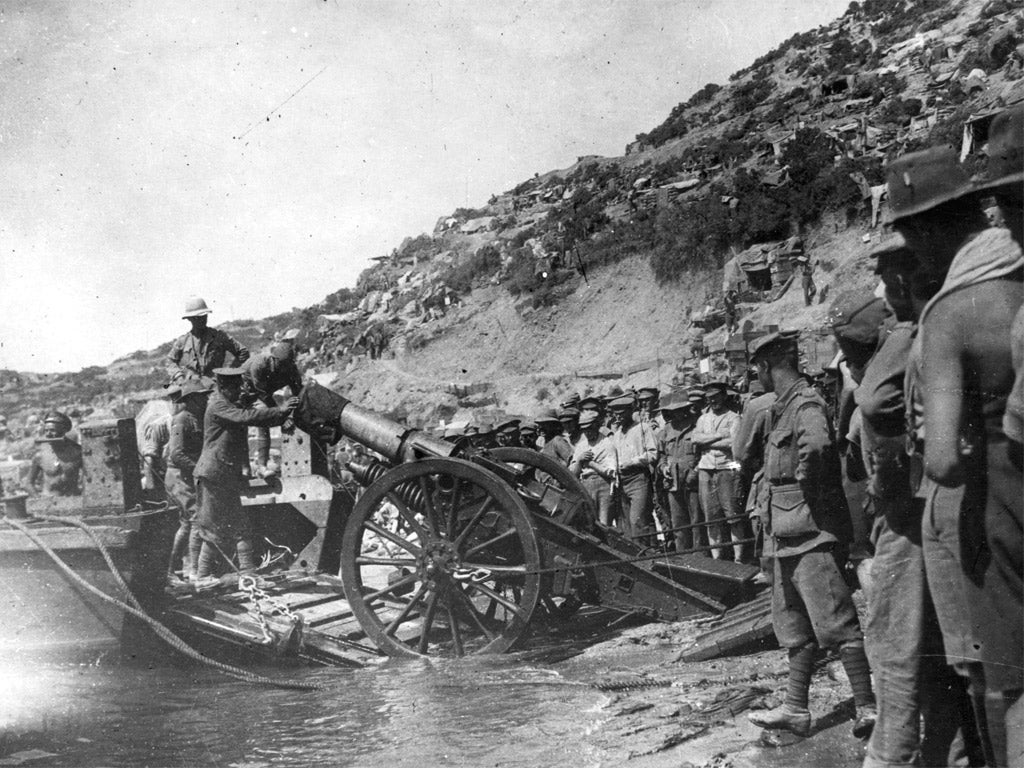The letter that shows how we should remember the First World War
The voices of ordinary people in extraordinary times still ring true 100 years on

Much has been made of how we should mark the centenary of the First World War, and a school project my son has just done on “The Experiences of the Trenches” led me to a way of thinking about it that was startlingly direct and powerful.
Sitting in his classroom, iPhone in his bag, my 14-year-old son attempted to recreate life on the Western Front. Impossible. You might as well imagine how soldiers managed to strap on their armour at Crécy. But then my son told my father about his project. “How proud your great-grandfather would have been,” he responded.
Richard Millard, who faked his age and signed up, aged 16, in 1914, was a boy soldier who managed to come through both Gallipoli and the Somme. He would not have been able to comprehend the possibility of a great-grandson, a century later, diligently studying the uniforms and maps of his struggle.
This week, I received a package from my father, which my son’s project had inspired him to send. In the envelope was a photocopy of a letter dated 19 October 1918, written to Richard Millard, at the front. I had never seen this letter, or even knew of its existence. My father had considered sending it to my son, but wrote: “I thought it might be too much for him.” It was nearly too much for me.
The letter is from his father, telling Richard that his younger brother, Spencer, has been killed – aged 19 – in a flying accident. In England. In the last moments of the War, young men joined a fledgling RAF and trained on something not much stronger than metal and wood held together with glue. I struggled to read the letter, although the handwriting is perfectly clear.
“My dear old Dick,” it begins. “I hardly know how to write to you in the midst of this great sorrow to tell you that Spencer is to be but a memory to you. But such a precious memory. He was here on leave a fortnight ago looking so well, and strong, full of the highest spirits and life. And now battered and broken, his poor body waits for me to go and consign it to its last resting place.”
My great-grandfather, the Reverend Frederick Millard, was a typical Victorian clergyman. He baptised his three sons himself. Now he was about to bury his middle child. “It is hard to bear, old chap,” he writes with the understatement typical of the age. “You have no idea what a splendid fellow he had grown – so handsome, so delightful.”
One can imagine that his sturdy faith was mortally shaken. “18-and-a-half years ago, a dear smiling baby, I held him as I baptised him in the throne of his dear Saviour, and I have often left him in confidence there, whether in life or death, and now He has taken him to Himself.” I read the letter to my son. “He was only a bit older than me,” he said.
Spencer’s parents never really recovered from their loss. The fear that their eldest son Richard might also be taken is expressly communicated at the end, but it screams throughout the document. “God keep you dear boy, and bring you back safe and sound,” writes my great-grandfather. “I can write no more for the moment. Your loving and sorrowing Father.”
If anything needs to be articulated during the commemorations for the 100th anniversary, it is surely this. The voices of ordinary people in which the pain, love and devastating loss suffered on both sides, still comes across so vividly.

Join our commenting forum
Join thought-provoking conversations, follow other Independent readers and see their replies